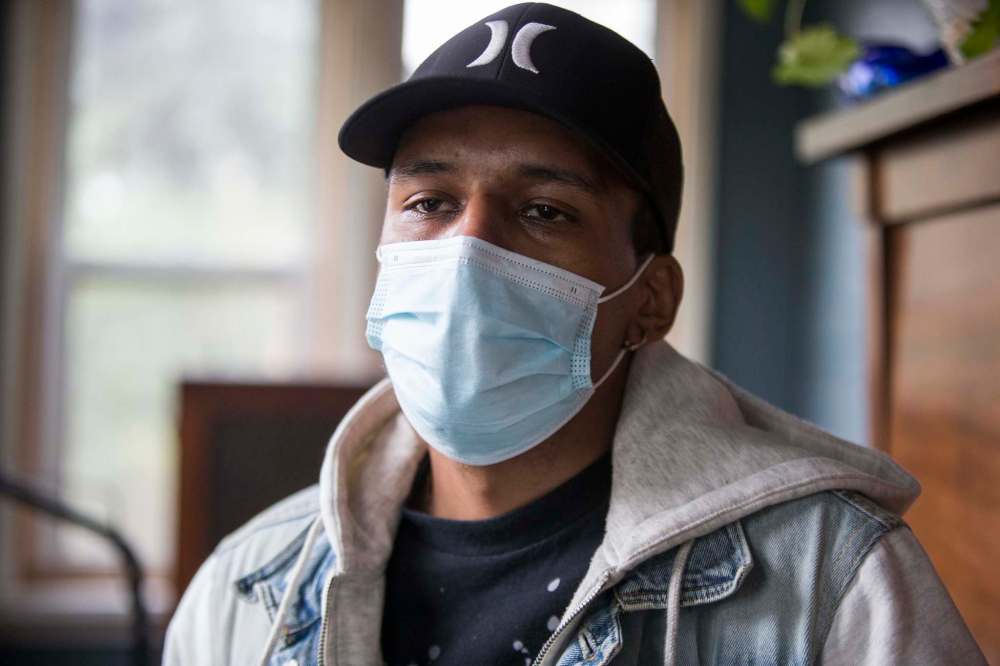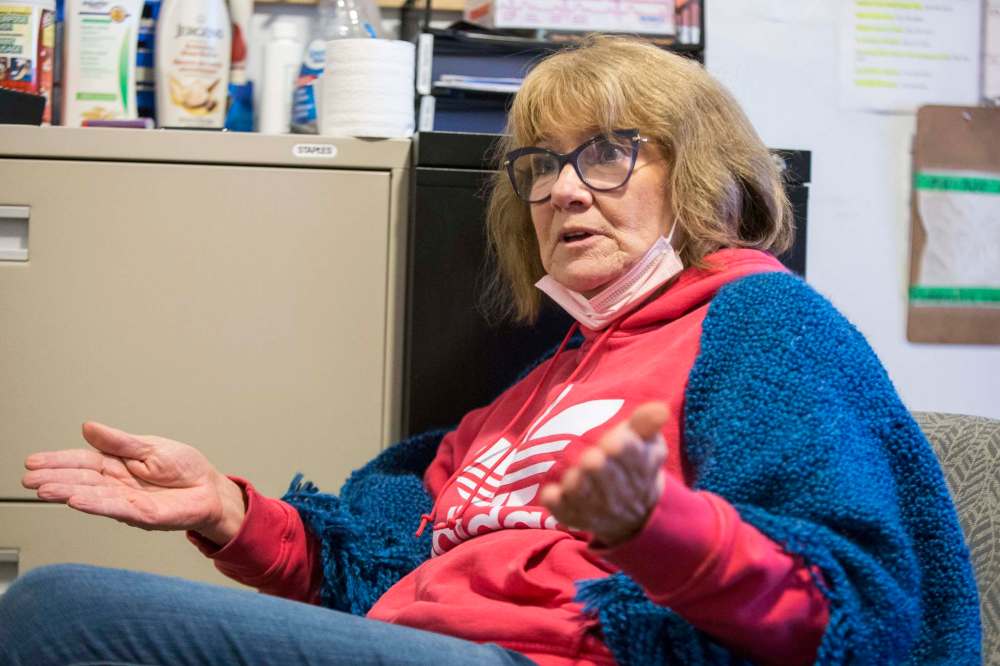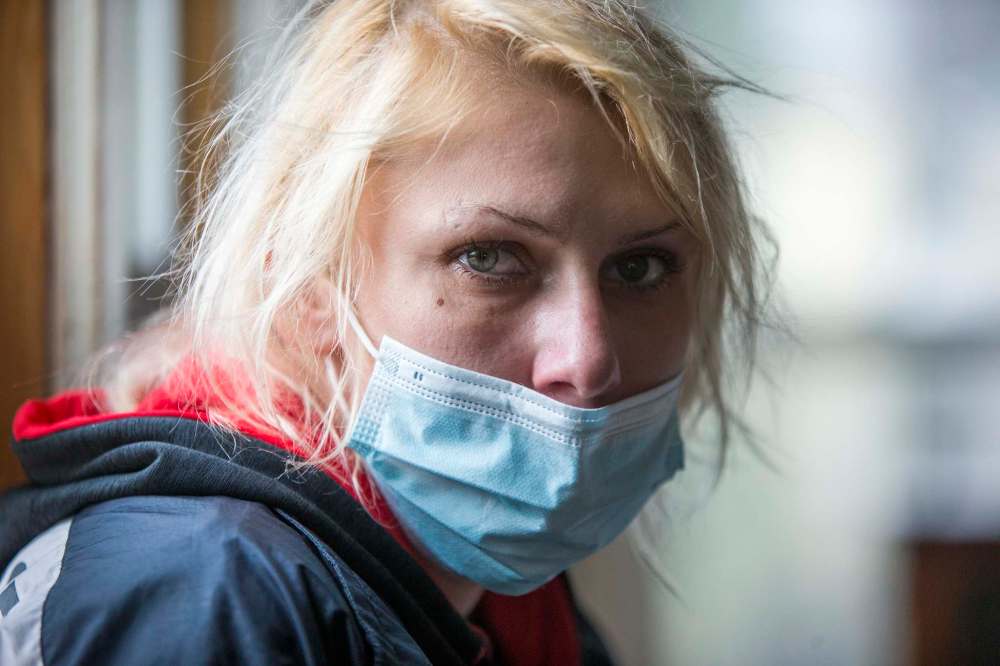Dying to get clean Limited hours and capacity at opioid clinics mean many desperate people can’t get help
Read this article for free:
or
Already have an account? Log in here »
To continue reading, please subscribe:
Monthly Digital Subscription
$0 for the first 4 weeks*
- Enjoy unlimited reading on winnipegfreepress.com
- Read the E-Edition, our digital replica newspaper
- Access News Break, our award-winning app
- Play interactive puzzles
*No charge for 4 weeks then price increases to the regular rate of $19.00 plus GST every four weeks. Offer available to new and qualified returning subscribers only. Cancel any time.
Monthly Digital Subscription
$4.75/week*
- Enjoy unlimited reading on winnipegfreepress.com
- Read the E-Edition, our digital replica newspaper
- Access News Break, our award-winning app
- Play interactive puzzles
*Billed as $19 plus GST every four weeks. Cancel any time.
To continue reading, please subscribe:
Add Free Press access to your Brandon Sun subscription for only an additional
$1 for the first 4 weeks*
*Your next subscription payment will increase by $1.00 and you will be charged $16.99 plus GST for four weeks. After four weeks, your payment will increase to $23.99 plus GST every four weeks.
Read unlimited articles for free today:
or
Already have an account? Log in here »
Hey there, time traveller!
This article was published 14/10/2021 (1521 days ago), so information in it may no longer be current.
Tabitha Andrusko and Nathaniel Rauch are spending a chilly afternoon suffering through fentanyl withdrawal.
They’re holding on through the hellish symptoms that stopping opioid use cold turkey brings — nausea, convulsions, hallucinations — because if they’re sober long enough, about 48 hours, they can access suboxone or methadone, both synthetic opioids that block the brain receptors affected by opioids that are used to help people taper off of their addictions, through one of Winnipeg’s two Rapid Access to Addictions Medicine, or RAAM, walk-in clinics.
Andrusko and Rauch, both 28, were ready to get help last week, too. They spent the Thanksgiving long weekend struggling to stay off fentanyl with the promise that on Tuesday, they’d be able to access RAAM clinic services, get put on methadone or suboxone, and begin the process of getting clean for good.
They got a ride to one of the clinics before the doors opened Tuesday from St. Boniface Street Links, a local non-profit agency. But the pair, along with the majority of the approximately 20 people in line, were turned away.
Andrusko and Rauch figure only a handful people who asked for help actually got it that day.

“We were hopeful because we had a ride and everything planned, and we thought it was going to be a sure thing, so just hang on, you know? We were both really sick,” says Rauch, who began using opiates at 18 after a car accident and the loss of his best friend. He has been without a place to live on and off for the past two years.
“We got turned away and that was it,” he says. “We ended up using that day again.”
The two Winnipeg clinics — at 817 Bannatyne Ave., and 146 Magnus Ave. — are among six in the province. The Bannatyne location is open to patients looking for new appointments three days a week for two hours a day, and Magnus is two days a week, two hours a day. Both RAAM clinics are open weekdays for patients already accepted.
The window to get help is so small and the facilities are so understaffed that the vast majority of people in Winnipeg who want help aren’t getting it, St. Boniface Street Links founder Marion Willis says, adding those who aren’t able to get the help inevitably go back to using dangerous street drugs.

“The very system that is supposed to be assisting drug-addicted people is actually forcing them back into use,” she says.
The agency provides a wide range of services, including driving clients to and from RAAM clinics.
It’s quite common for people to be turned away because of the short hours and limited capacity, says lived experience board member Robert Lidstone.
“It needs to be an emergency service, it can’t be something that’s just two hours here and two hours there, addiction doesn’t follow that kind of timeline,” says Lidstone, who is in recovery. He began using drugs while studying to get his PhD at York University in Toronto.
He has personal experience accessing withdrawal management services in Toronto and remembers being able to call for help at any time of night and be referred to a detox centre attached to a hospital.
He and Willis agree that a similar system is required here providing access to life-saving opioid alternatives when people are ready to commit to them.

“It’s inadequate resources, inadequate investment in the service, it’s not treated as an emergency service,” he says.
Seven people using St. Boniface Street Links services died of overdoses betweeen June and September, Willis says.
“We’re almost to the point here where we could create a wall of names of the people that are dying,” she says.
The province announced nearly $820,000 in funding to increase the capacity of Winnipeg’s RAAM clinics in May after the number of deaths related to substance abuse in Manitoba in 2020 nearly doubled from 191 in 2019 to 372 in 2020.
That spike has been attributed, in part, to the way COVID-19 has changed lives. Disruptions in the drug supply are putting less-reliable, more dangerous substances on the street, and the people using them are more likely to be alone, with no one around to get help in case of an overdose.
A spokesperson for Manitoba Mental Health, Wellness and Recovery says the province is in the process of expanding capacity at RAAM clinics.
“RAAM services are being evaluated by an external evaluator that is looking at effectiveness and value for money,” the spokesperson wrote in an email. “By increasing access to addictions-treatment services, including addictions medication, it is expected that RAAM clinics will result in significant cost savings to the health system over the longer term.”
“I find that this government looks at people who are using drugs as morally failing.” – MLA Bernadette Smith
During question period at the Manitoba legislature this week, NDP MLA Bernadette Smith was criticized by Health Minister Audrey Gordon for pushing a system “based on emotion” when she spoke about the difficulties people with addiction face when attempting to get help at RAAM clinics and called for investment into safe-consumption sites.
“I find that this government looks at people who are using drugs as morally failing,” Smith said. “And that’s not true.”
The province needs to use its funding to invest not just in more capacity at RAAM clinics, but in other harm-reduction fields, she said.
“We know that when someone gets into treatment, it kind of has to be there, and now, or else they’re just going to go back to that hopelessness: ‘I’m never going to get in, I’m never going to get help,’ and possibly leave there and lose their life.”
The fact that people continue to be turned away despite the province’s large investment is proof money, alone, isn’t the answer, Willis says, adding funding should flow into channels directed by the boots-on-the-ground organizations doing the work, not the other way around.
“There doesn’t seem to be the political will, and this government’s approach is extremely paternalistic — they think they know best (but) they don’t know best,” she says. “We need to have 24-hour, seven-days-a-week addiction services; we need a 24-hour point of access.”
Now, a day after being turned away, Andrusko and Rauch prepare to try again. The two 28-year-olds are visibly ill from withdrawal symptoms; Rauch is covered in a sheen of perspiration and occasionally closes his eyes while speaking.
Andrusko, who has been on the streets off and on after aging out of Child and Family Services at 18 and has been using drugs since she was 14, blows her nose and struggles to sit upright.

The inability to get help has killed people they know and come close, in Rauch’s case.
“I’ve died but was revived twice so far, and both times I was trying to get into treatment at the RAAM clinic,” he says.
Both find themselves living in the moment, or in the most short-term version of the future possible, either feeding their addictions or seeking assistance to get out from under them.
They have long-term goals, though, and talk about them honestly and thoughtfully.
“I think about my mom and my grandparents who haven’t given up on me,” Rauch says. “I have no relationship with them when I’m using, and then the times when I’m able to get clean for a bit, they’re fully supportive…
“It’s never too late, I just like to keep that in mind.”
Andrusko has four children between the ages of three and 10. They’re living in different places right now, but she says she dreams about having them in her care again.
“I’ve been sober, I’ve had my kids in my care, everything. I know I can do it,” she says. “But it’s hard, because I always get turned away.”
malak.abas@freepress.mb.ca
Twitter: malakabas_

Our newsroom depends on a growing audience of readers to power our journalism. If you are not a paid reader, please consider becoming a subscriber.
Our newsroom depends on its audience of readers to power our journalism. Thank you for your support.
History
Updated on Friday, October 15, 2021 9:23 AM CDT: Clarifies hours of operation







